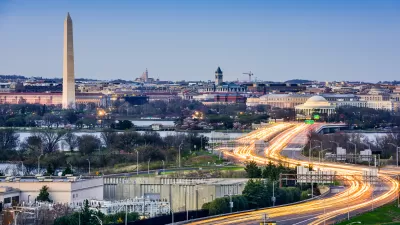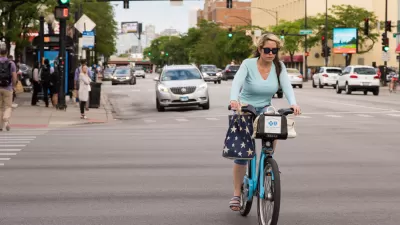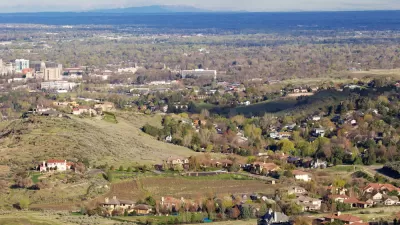Smart growth advocates have been making this point for years, but a new report from the Washington, D.C. regional planning organization provides more evidence for the strategic location of population and job growth.

The Transportation Planning Board—the metropolitan planning organization (MPO) for metropolitan Washington D.C.—recently released a study linking transportation and land use planning, according to an article by David Alpert.
Actually, the "Long-Range Plan Task Force: Draft Analysis Results" report analyzed ten possible transportation improvements for their potential for enabling more jobs and housing in the eastern reaches of the Washington, D.C. region, but only one of those options had to do with land use. Nonetheless, the report found that a balanced approach to regional land use would be the second-most effective approach to reducing congestion, increasing housing options, and improving access to jobs.
"Steering more of the jobs and housing growth (especially jobs) to the east side of the region (like east of the Anacostia River, eastern Montgomery, Prince George's, Alexandria, and Route 1 in Fairfax) and putting more of that growth near transit," would cut traffic delays by 18 percent, according to Alpert's explanation of the report's findings. Other effective transportation planning improvements include travel demand management and an express travel network.
FULL STORY: The best way to improve transportation in our region is…

Alabama: Trump Terminates Settlements for Black Communities Harmed By Raw Sewage
Trump deemed the landmark civil rights agreement “illegal DEI and environmental justice policy.”

Planetizen Federal Action Tracker
A weekly monitor of how Trump’s orders and actions are impacting planners and planning in America.

The 120 Year Old Tiny Home Villages That Sheltered San Francisco’s Earthquake Refugees
More than a century ago, San Francisco mobilized to house thousands of residents displaced by the 1906 earthquake. Could their strategy offer a model for the present?

In Both Crashes and Crime, Public Transportation is Far Safer than Driving
Contrary to popular assumptions, public transportation has far lower crash and crime rates than automobile travel. For safer communities, improve and encourage transit travel.

Report: Zoning Reforms Should Complement Nashville’s Ambitious Transit Plan
Without reform, restrictive zoning codes will limit the impact of the city’s planned transit expansion and could exclude some of the residents who depend on transit the most.

Judge Orders Release of Frozen IRA, IIJA Funding
The decision is a victory for environmental groups who charged that freezing funds for critical infrastructure and disaster response programs caused “real and irreparable harm” to communities.
Urban Design for Planners 1: Software Tools
This six-course series explores essential urban design concepts using open source software and equips planners with the tools they need to participate fully in the urban design process.
Planning for Universal Design
Learn the tools for implementing Universal Design in planning regulations.
Clanton & Associates, Inc.
Jessamine County Fiscal Court
Institute for Housing and Urban Development Studies (IHS)
City of Grandview
Harvard GSD Executive Education
Toledo-Lucas County Plan Commissions
Salt Lake City
NYU Wagner Graduate School of Public Service





























